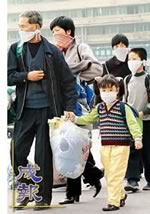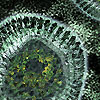You remember the story about the consequences of yelling "Fire" in a crowded movie theatre. Mother nature has designed us to flee, and quickly, from emergencies until we are at a safe distance and with a bit of time to think about how best to save ourselves. We call it panic, and can see that it's the least productive preparation for dealing with attack.
International agencies are very cautious about announcing pandemic information for this reason. Now is the time and this is the distance we have to save ourselves from possible pandemic consequences. With each new development, or viral mutation, we move closer to what scientists and history tell us is most likely to happen.
The most recent news is from Pakistan that at least three brothers were infected with the bird flu virus, and it is likely there was human-to-human spread in that instance. This is confirmed by WHO, a cautious and thorough monitor of the world pandemic situation.
Though this news has been expected for some time, no one wants to name this as the signal that the virus has mutated to the point where we now expect widespread contamination. It is, however, an indicator that another obstacle has been breached, and the virus continues to adjust to new hosts.
There is, however, encouraging news in this new stage. There is a great deal of awareness and preparation going on world wide, and the best minds are helping to analyze and track the potential threat.
This news is also a reminder that awareness leads to precautions, and being prepared is our best hope of besting this threat. Even though in China and Vietnam there are human trials entering a second stage for an experimental bird flu vaccine, the nature of a virus is for it to mutate and change, perhaps rendering this vaccine, in its current form, useless. These vaccine trials do lay the ground work for an eventually effective vaccine.
More good news is that our best protection still lies in our own hands, so to speak. Frequent hand washing, social distancing, and proper cough and sneeze etiquette are still our best lines of defence.
The recent news of the isolated human-to-human transmission of the H5N1 virus is perhaps the motivation we need to not only practice our personal hygiene habits with regularity, but to prepare the home and family with information, materials and supplies to shelter at home. A stockpile in the home of food and other supplies gives us the option of reducing our public exposure (where the virus is going to be exchanged) to a minimum.
It appears that we still have time to develop our stockpiles gradually. This spreads costs over time, and gives time to develop storage and maintenance strategies.
Most websites recommend: a supply of water to supply four litres per person, per day; non-perishable foods that need a minimum of preparation; and first aid supplies and medications. Don't forget pet supplies and special considerations if there are infants or others with dietary restrictions to provide for. There are many excellent web sites on-line for more details regarding disaster preparations.
Personal disaster preparedness can sustain you and your family through any emergency or disaster that could potentially happen, from a natural emergency, to service disruptions, or environmental disaster.
If you are unprepared for a disaster, it can be devastating. Your best protection is having a plan and knowing what to do. Set up a family meeting to discuss how each of your family members can contribute to the plan and be best prepared.
Friday, April 4, 2008
Subscribe to:
Post Comments (Atom)







No comments:
Post a Comment